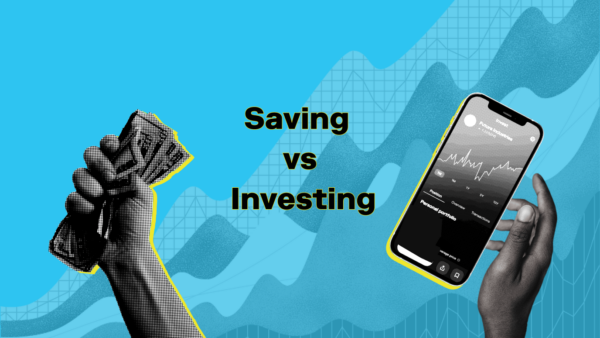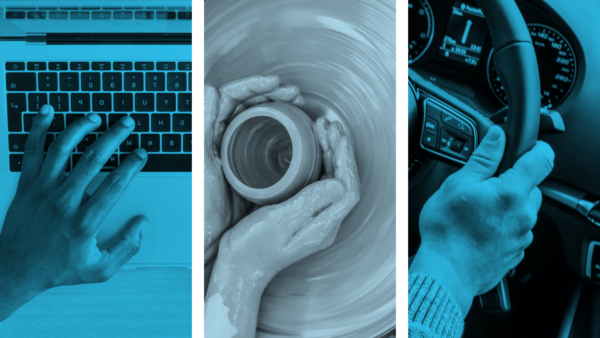Sep 27, 2016
4 Reasons Why You Probably Don’t Discuss Money

How much money do you make? How much debt do you have? How much money do you have in your savings account right now?
Chances are at least one of those questions made your palms start to sweat. Talking about money makes people uncomfortable — the truth is, people would rather talk to perfect strangers about their sex lives than their personal finances. What’s behind all of this?
Here are four things that make it so hard to talk about money:
Life is one big game of “would you rather”
Money is hard to talk about because everyone has different priorities.
In 2016, couples spent an average of $32k on their wedding. If you take a closer look at their budgets, you can see a vast difference in priorities. Some couples prioritize a delicious sit-down meal and save money by making their own playlist. Other couples find a simpler venue so they can book their favorite band. Couples find ways to cut spending in one place so they can splurge on something else.
These differences in priorities make communicating about shared expenses very difficult. You choose to shop at budget grocery stores because you want to spend money on weekend trips to visit your long-distance S/O. Your roommate wants to buy organic produce and the best cuts of meat at Whole Foods but rarely travels at all. Simple difference of priority? Yes. Cause of conflict when discussing how to split the grocery bill? Definitely.
You can’t see beyond the filters and frames
Money is hard to talk about because everyone thinks that everybody else has more of it.
At some point this month, you may make a deliciously delectable fall meal for friends. After serving up the apple-pumpkin-spiked goodness, you snap a photo and post it to Instagram. Of course you know that this isn’t how you eat every day; last night you had boxed mac and cheese, and tomorrow night you’ll have a PB&J. But from an outsider’s perspective, it’s easy to assume that your food budget can handle spending like this every day.
This ‘highlight reel’ phenomenon makes people think, “If my peers can spend like that, I should be able to as well.” Your friends’ Instagram accounts can make you itch to buy that trendy new shoe, check out the latest restaurant, or overspend on just about any aspect of your budget. And research shows that many Americans are making decisions like this and living beyond their means. According to a Pew Research study, 55% of American households spend more than they make every single month.
Two paths diverged in a wood, and I took the road to a big city
Money is hard to talk about because people choose different paths.
 You ate ramen noodles sitting on the floor with your best friend in college. Now you’re a designer in New York City and he’s teaching high school in rural Louisiana. You’re making more money than him, but his loans will be forgiven in five years because he’s teaching in a Title 1 school. You’re spending an astronomical amount for rent on a 500 square foot apartment, and he’s a homeowner at 25.
You ate ramen noodles sitting on the floor with your best friend in college. Now you’re a designer in New York City and he’s teaching high school in rural Louisiana. You’re making more money than him, but his loans will be forgiven in five years because he’s teaching in a Title 1 school. You’re spending an astronomical amount for rent on a 500 square foot apartment, and he’s a homeowner at 25.
You started your adult life in a similar place but your financial situation is drastically different at your five-year reunion.
More than half of American households spend more than they earn each month.
That’s because the cost of living varies greatly between cities in America – and just because you move to a city with higher wages, it doesn’t mean those wages will make up for the higher cost of living. To compare apples to apples, researchers look at something called the “cost of living ratio” which compares the median salary in a given city to the median home value. Detroit, Memphis, and Pittsburgh top the list of the 25 places your money will go furthest in America. New York City and San Francisco are not-so-mysteriously left off the list entirely.
“You’ll understand when you’re older”
Money is hard to talk about because old habits die hard.
 Maybe your family didn’t talk about money or perhaps it was a source of stress that could never be avoided. Many children learn at a young age that money is a taboo topic. Case in point, 72% of parents are reluctant to talk to their kids about money for one reason or another. Kids attach emotions to it that they hold long into adulthood. It’s not surprising then to learn that 88% of Millennial couples say financial decisions are a source of tension in their partnerships.
Maybe your family didn’t talk about money or perhaps it was a source of stress that could never be avoided. Many children learn at a young age that money is a taboo topic. Case in point, 72% of parents are reluctant to talk to their kids about money for one reason or another. Kids attach emotions to it that they hold long into adulthood. It’s not surprising then to learn that 88% of Millennial couples say financial decisions are a source of tension in their partnerships.
So how do you break the mold?
You don’t have to release your tax returns to the press to get the conversation started.
Start the conversation about financial goals by trading budgeting tips and great ideas. You’re not the first person to save for a vacation. You’re also not the first person to try to plan healthy meals that won’t break the bank. Talk to your friends about money-saving hacks they’ve used in the past and trade your best ideas.
Stash Learn Weekly
Enjoy what you’re reading?
[contact-form-7 id="210" title="Subscribe" html_id="default"]Start the conversation about work and career by giving (or getting) a pep talk from a close friend. Maybe you’re approaching your next performance review and you’d like to talk to your boss about a raise. Call a friend in a similar field and ask them how they’ve approached that conversation in the past. What’s their advice?
Start the conversation about investing by discussing trends you see in the world. Do you and your friends talk about the latest tech products? Talk about what companies you would consider adding to your investment portfolio.
What would really happen if you take it a step further? What if you asked a close friend how much money they make, or how much progress they’ve made on their student loans?
They might squirm… but they also might share. And even if they squirm – follow it up with a conversation around why it’s so #$%^&?! hard to talk about money. Maybe everyone else is just waiting for you to start the conversation.
Related Articles

Saving vs. Investing: 2 Ways to Reach Your Financial Goals

How to Save Money: 45 Best Ways to Grow Your Savings

How to Set Up an Emergency Fund

How Much of Your Paycheck Should You Save?

How To Stop Impulse Buying

29 Side Hustles To Consider in 2024






